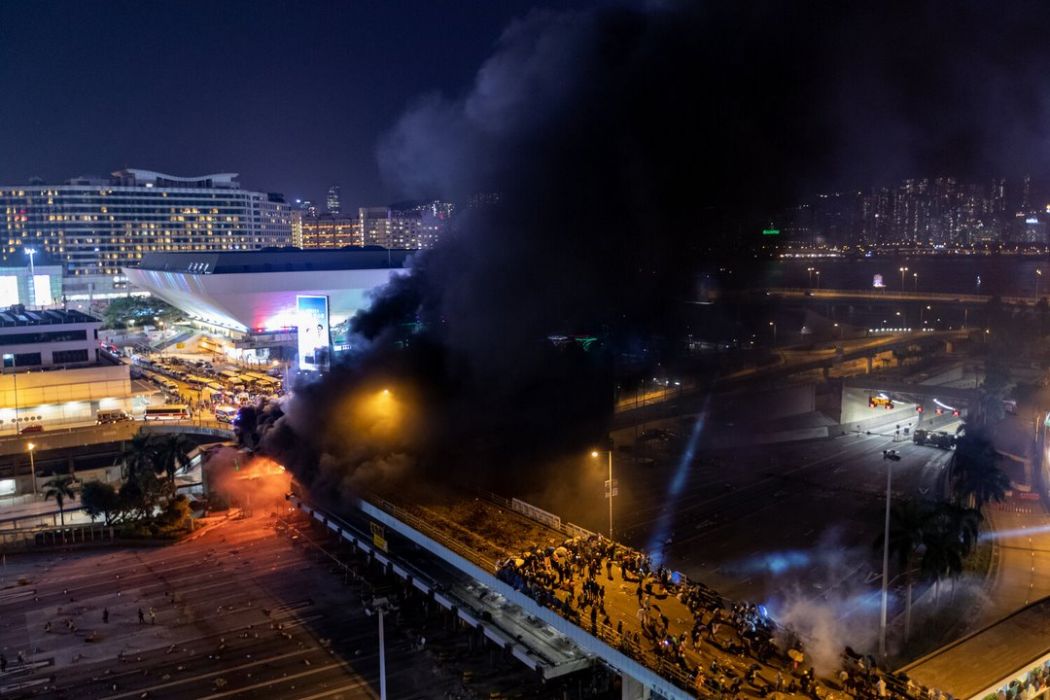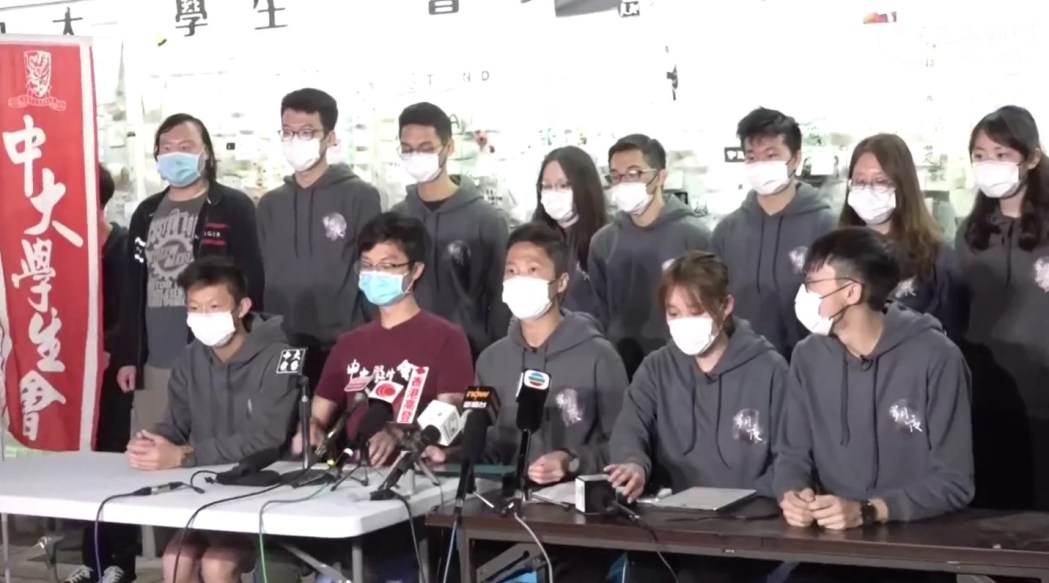The Hong Kong Polytechnic University (PolyU) has cut ties with its students’ union, becoming the fifth university to order its student body to vacate campus premises since the implementation of the national security law.

In an email sent to the union on Friday, the university said that it had repeatedly requested the union to sign an Acknowledgement of Compliance since 2013, according to former PolyU students’ union chief Alan Wu. The acknowledgement required the student body to abide by certain terms and conditions to use the university name.
The university ordered the 28-year-old students’ union to cease using the university name and using university resources, and to vacate campus premises by July 15.
PolyU told HKFP on Friday that the requirement was in place to safeguard the university’s reputation and interests, and cited the Hong Kong Polytechnic University Ordinance which requires any organisation to seek PolyU’s authorisation in order to claim association with it.

In June 2020, Beijing inserted national security legislation directly into Hong Kong’s mini-constitution – bypassing the local legislature – following a year of pro-democracy protests and unrest. It criminalised subversion, secession, collusion with foreign forces and terrorist acts, which were broadly defined to include disruption to transport and other infrastructure.
The move gave police sweeping new powers, alarming democrats, civil society groups and trade partners. It has been cited by the city’s educational institutions in cases relating to students’ unions and the removal of artworks from campuses. However, the authorities say it has restored stability and peace to the city.
‘Undermine the interests of PolyU students’
An older version of PolyU’s Acknowledgement of Compliance seen by HKFP forbade the students’ union from engaging in any act that “is illegal, immoral or may harm, adversely affect or bring into disrepute the reputation of the University.” It also required the union to hand over any information requested by the school authority, including the names of its officers and its member list.
The document said that “the Organisation must comply with the Conditions,” adding that “The University may from time to time amend these Conditions and introduce other conditions which are applicable to Authorised Organisations as it thinks fit.”
The Ad-hoc Executive Committee of PolyU students’ union also published a statement on Friday, expressing their regret at the school’s decision, which they said would “undoubtedly undermine the interests of PolyU students.”
“We hope that all PolyU students will not give up the pursuit of their own rights, even if the Union ceases to operate,” the union said. “We wish all PolyU students the best.”

Two executive members of PolyU’s student body resigned in January, when the then-cabinet could not agree whether to hold a referendum on signing the document, according to a report by the PolyU student press.
Two weeks before the negotiations broke down, Hong Kong police raided the PolyU students’ union on suspicion of being in possession of an explosive substance. In 2020, dozens of national security police also raided the union to collect evidence related to the PolyU siege in 2019.
Not the first time
PolyU became the fifth university to ban its top student body from accessing university’s resources, after the Chinese University of Hong Kong (CUHK), the University of Hong Kong (HKU), the City University of Hong Kong (CityU), and Lingnan University.
PolyU, CUHK and HKU were the only universities in the city with successfully elected students’ unions the 2020-2021 academic year. However, none were able to finish their terms after interventions from their respective universities.

CUHK cited national security concerns when it cut ties with its student body in February. All members of the CUHK students’ union resigned the same day they were elected, citing death threats and having foreseen that the body might not be able to freely express its political opinions. The 50-year-old students’ union decided to dissolve in October 2021.
Student leaders from HKU’s students’ union have been arrested by national security police over allegedly advocating terrorism. The student body passed a motion to mourn for a man who stabbed a police officer on July 1 before killing himself. HKU barred student leaders from entering its campus and going to classes.
Lingnan and CityU requested their students’ unions to vacate campus premises in February, citing financial reasons and the need to release rooms for other student organisations. Local media quoted sources saying that the national security department of the police were investigating CityU’s students’ union after student leaders initiated an on-campus protest to oppose the university’s move-out-order in mid-February.
Correction 17.10: An earlier version of this story incorrectly stated that PolyU was the third university to order its students’ union to vacate campus premises. It is actually the fifth. We regret the error.
Support HKFP | Policies & Ethics | Error/typo? | Contact Us | Newsletter | Transparency & Annual Report | Apps
Help safeguard press freedom & keep HKFP free for all readers by supporting our team
























